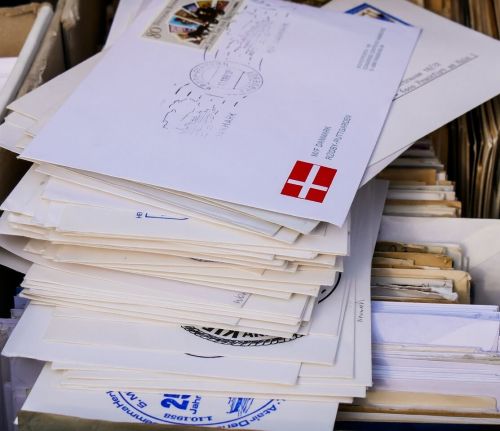Letters to the Editor | August 15th, 2018
 Judge Kavanaugh’s views on voting rights and racial justice in America are extremely troubling- in light of the fact that right now Native voters in North Dakota are fighting for their voting rights in Brakebill v. Jaeger, which is headed to the U.S. Supreme Court.
Judge Kavanaugh’s views on voting rights and racial justice in America are extremely troubling- in light of the fact that right now Native voters in North Dakota are fighting for their voting rights in Brakebill v. Jaeger, which is headed to the U.S. Supreme Court.
As Native women leaders of North Dakota who understand fully the decisions we make today will not only affect us, but seven generations ahead of us, we urge Senators Heitkamp and Hoeven to closely examine Supreme Court Nominee Judge Brett Kavanaugh’s record regarding Native peoples. We believe that as both a lawyer and as a judge, Judge Kavanaugh has failed consistently to acknowledge the sovereignty, natural resources, and unique history and heritage of Native People.
His actions and writings reveal a lack of understanding about the rights of Native People. Additionally, it is unlikely he will support access to affordable health care through the provisions of the Affordable Care Act (ACA) or advocate for the health care rights of women.
In 2012, Judge Kavanaugh ruled against the Obama Justice Department’s challenge to a South Carolina voter ID law that claimed significant racial disparities in the law’s photo ID requirement [South Carolina v. United States, 898 F.Supp.2d 30 (D.C. Cir. 2012)]. In writing the opinion for the three-judge panel, Kavanaugh refused to acknowledge the importance of Section 5 of the Voting Rights Act, which provides the review process for new voting laws – and without which the South Carolina law would have been even more restrictive.
We agree with the concerns expressed by the National Congress of American Indians (NCAI) over Judge Kavanaugh’s tribal sovereignty views, particularly as they relate to voting rights and health care.
“Voting rights are first-generation rights along with freedom of speech, the right to a fair trial, and freedom of religion. Yet American Indian and Alaska Native voters continue to encounter language barriers, enormous distances to polling places, arbitrary changes in voter identification laws, purged voter rolls, and intimidation and animosity in reservation border towns that disenfranchise Native voters. Equal access to voting is not only a matter of fairness, but it is a fundamental civil right afforded to all citizens, including American Indians and Alaska Natives.”
- NCAI Executive Director, Jacqueline Pata
In 1999, Kavanaugh co-wrote an amicus brief, as an attorney, (on behalf of a group that opposes minority rights and affirmative action) he argued that a Hawaii law allowing only Native Hawaiians to vote for trustees of a state office, an original treaty between the US and Native Hawaiians to compensate Native Hawaiians for land that had been taken from their ancestors, was unconstitutional [Rice v. Cayetano, 528 U.S. 495 (D.C. Cir. 2000)].
He said in an interview that the case “is one more step along the way in what I see as an inevitable conclusion within the next 10 to 20 years when the court says we are all one race in the eyes of government” (The Christian Science Monitor, 1999). Kavanaugh’s misleading use of language and law, such as utilizing the veneer of “equality” to obliterate treaty obligations, is a deeply troubling indication he is opposed to critical civil rights protections and to equal opportunity programs that are designed to advance diversity and remedy past discrimination.
Our concerns are grounded in human and Native rights, not partisan politics. Supreme Court Justice Neil Gorsuch, another appointee of President Trump, has a good record with regard to Native People, we supported him, and he has sided with Tribes in two of three cases since he joined the court.
We have no such confidence in Judge Kavanaugh, and we encourage Senators Heitkamp and Hoeven to vet him thoroughly and to vote NO for his selection to the Supreme Court of the United States.
Finally, as mothers, daughters and grandmothers, we believe Judge Kavanaugh is a significant threat to the ACA and its important protection for pre-existing conditions, as well as to women’s reproductive and health care rights.
Native People deserve better. We all do.
[Links to the NCAI statement andTurtle Talk’s discussion of Kavanaugh’s Indian law record.]
Respectfully,
Twyla Baker
MHA Nation
Sandra Bercier
Turtle Mountain Band of Chippewa
Melissa Brady
Spirit Lake Nation
Ruth Buffalo
MHA Nation
Anita Charging
MHA Nation
Danielle Finn
Standing Rock Sioux Tribe
Cedar Gillette
MHA Nation & Turtle Mountain Band of Chippewa
Lillian Jones
MHA Nation
Cheryl Kary
Standing Rock Sioux Tribe
Hillary Kempenich
Turtle Mountain Band of Chippewa
Denise Lajimodiere
Turtle Mountain Band of Chippewa
Sheridan Seaboy-McNeil
Standing Rock Sioux Tribe
Mary Baker
MHA Nation
Tawny Cale
Turtle Mountain Band of Chippewa
Sunshine Carlow
Standing Rock Sioux Tribe
Kelly Charging
MHA Nation & Turtle Mountain Band of Chippewa
Stephanie DeCoteau
Turtle Mountain Band of Chippewa
Andrea Denault
Turtle Mountain Band of Chippewa
Lisa DeVille
MHA Nation
Nicole Donaghy
Standing Rock Sioux Tribe
Alayna Eagle Shield
Standing Rock Sioux Tribe
Amber Finley
MHA Nation
Bill Jo Gravseth
Standing Rock Sioux Tribe
Natasha Gourd
Spirit Lake Nation
Ashly Hall
MHA Nation
Tammy Hammer
MHA Nation
Tonya Hertel
Standing Rock Sioux Tribe
Marlo Hunte-Beaubrun
Standing Rock Sioux Tribe
Margaret Landin
MHA Nation
Amanda Mhyre
Standing Rock Sioux Tribe
Joyce Shining One Side
Turtle Mountain Band of Chippewa
Jodi Spotted Bear
Indigenous Media Freedom Alliance
Wendi R. Wells
MHA Nation
Kandi White
MHA Nation
Angel Young
Standing Rock Sioux Tribe
LaDonna Allard
Standing Rock Sioux Tribe
Glenda Rush
MHA Nation
Chairwoman Myra Pearson
Spirit Lake Nation
Prairie Rose Seminole
MHA Nation and Northern Cheyenne
Linda Bradfield Gourneau, MD
MHA Nation
Melanie Nadeau, PhD
Turtle Mountain Band of Chippewa
January 24th 2026
December 18th 2025
August 19th 2025
June 19th 2025
June 2nd 2025



__293px-wide.jpg)

